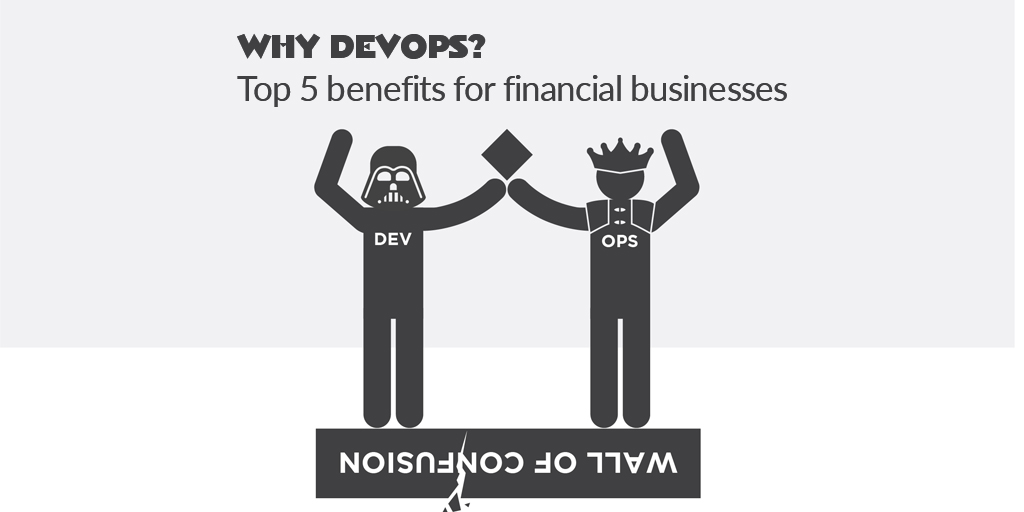
Why DevOps? Top 5 Benefits for Financial Businesses
DevOps is an operational philosophy which by its nature is quite centralized; that is, different jobs and tasks are not distributed among different departments; rather, one single team is responsible for the end-to-end development of software. This is in stark contrast to the working culture of a financial business where every department has various teams working on separate projects with discrete specializations.
Another difference between the working culture of DevOps Engineers and that of financial businesses is the latter’s rigidity in the face of changes. Their rationale that ‘if it isn’t broke, why fix it’ has been a hurdle in their approach to modernizing. Only a handful of banks today deploy DevOps. This impediment, called inflexibility, has made it even harder for financial businesses to switch to DevOps, considering most of their current hardware does not support it.
How Beneficial is DevOps?
The task is cut out for banks if they are to implement DevOps solutions for financial businesses. The challenges are umpteen, but they should not be a deterrent as the benefits far outweigh the cost of utilizing DevOps, as stated below:
1. Speed
As mentioned earlier, DevOps is a centralized system, where a team has the responsibility of the application (software) from the start to the end. The development cycle never stops, with all the departments (business, developers, IT department) at work all at once, unlike the traditional waterfall method, where the job was streamlined and responsibilities would move between the departments only when the previous team had completed its responsibilities. The fact that an organization can deploy code 30 times faster than with DevOps as compared to an organization stuck with the waterfall development strategy should at least be enough to turn a few heads. It makes lot of sense to seek assistance from DevOps service providers for customized solutions.
2. Improved Processes and Teamwork
The strength of DevOps lies in the fact that it utilizes people, technology, and processes in a well-orchestrated manner. The fact that so many people (DevOps Engineers) work together with a single objective should bring a harmony among the teammates and further encourage superior practices to bring about a system which prides itself on delivering products and working on the problems in a very streamlined process.
3. Cost-Effective
As we have seen in an earlier point, DevOps helps deploy 30 times faster than any other working strategy, which results in a shorter development time. This helps financial businesses cut down on cost astronomically, and it does not stop here. The need for physical hardware and their deployment times can be evaded by opting for DevOps cloud services, which in turn will cut down your cost considerably along with giving you the ability to upscale or downscale, depending on your needs, just on the click of a button.
4. Feedback and Response
DevOps managed services are super-responsive and effective when it comes to feedback. Since a single team is responsible for the end-to-end development, the operations department, as well as the customers, can provide feedback to the developers at any stage of the development cycle and developers can iron out the bugs and discrepancies in time.
5. Security
The myth that the increased software deployment velocity attained due to DevOps is a threat to security and regulatory practices has already been debunked. It has often been demonstrated that DevOps practices actually help bolster security and can provide automated solutions, which enhance security while also helping out with repetitive tasks and audit requirements.
What next?
Thus, DevOps will only bolster the financial businesses, be it from a financial point of view or operational. While it is widely acknowledged that implementing DevOps can be a bit too much at the beginning, seeking assistance from experienced consultants from the field can be a healthy first step, one which shall ensure a better future.

.jpg)















 Whatsapp
Whatsapp
 Email
Email


